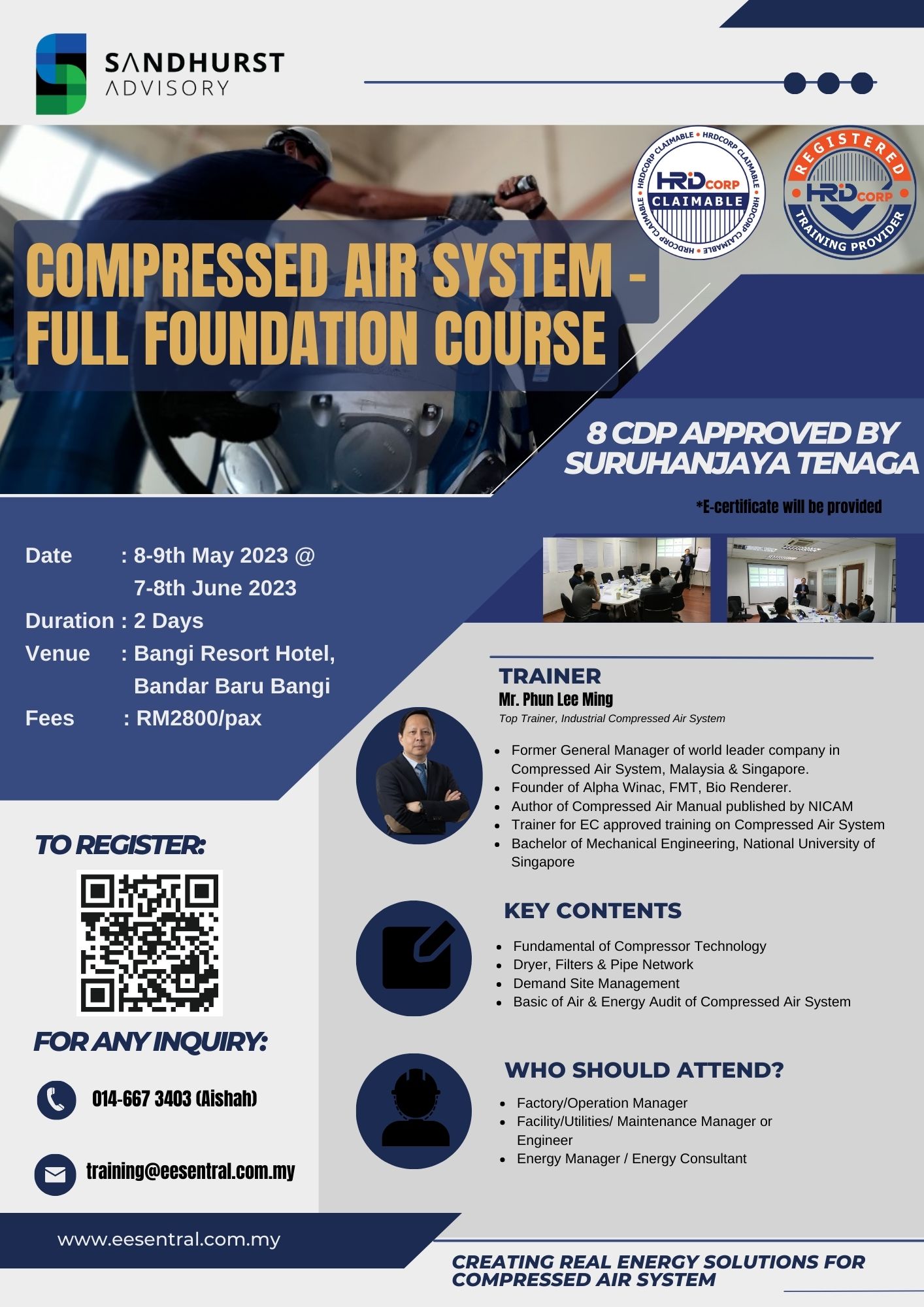Compressed Air System – Full Foundation Course
OBJECTIVES
Participants will be able to learn:
- Comprehensive study of Compressor, Dryer, Filter technology
- The Characteristic of Screw technology, Centrifugal technology and Piston technology in Energy Efficiency and Operation Range.
- Selection of right compressor to develop Energy Efficiency system
- Demand Side Management and its impact on Energy consumption
- Biggest Energy wastage area: Artificial demand and how to eliminate it to achieve saving
- Audit processes to evaluate the energy performance of compressed air system
- Understand various audit methods and tools available in today’s technology
- Practical solutions and case studies in solving Energy Wastage and develop Energy Saving Measurement.
Overview
This technical training is designed to provide Facility / Engineering / Energy Specialist or Engineer with a comprehensive learning about Compressed Air System. From the Fundamental of Compressors technology & characteristic, Dryers & Filters selection; to understanding of Demand Side Management; students will acquire a strong foundation for day-to-day management and project planning of Compressed Air System
The Course also includes trainings on the process of Audit and Evaluation of Energy Performance on Compressed Air System, identifying the system weaknesses and develop Energy Saving Measurement (ESM) to achieve Energy-Efficient system and to achieve significant energy saving activities. Practical solutions and case studies will be shared and discussed during the interactive session
Endorsed by Suruhanjaya Tenaga (ST(IP/JOI/KPT)16/35/101(028)) – 8 CDP
and
HRD Corp Claimable Course



